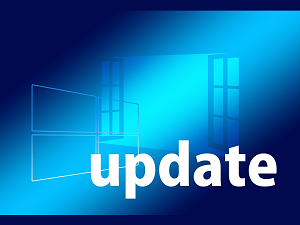 Are you in the habit of not upgrading your Windows OS on a regular basis?
Are you in the habit of not upgrading your Windows OS on a regular basis?
If you are then when you get around to it you may find that you’ve got a rather long backlog of updates to apply. The process can take quite some time and involve a number of system restarts to complete them.
What you may not realize is that Microsoft is aware of the time consuming nature of their updates and they’ve worked hard to make the process more efficient. In part they do this by regularly reviewing Windows updates and marking them for expiration which removes them if they’ve been superseded by newer updates. Christine Ahonen is a Program Manager at Microsoft and recently shined a spotlight on this issue.
Ahonen had this to say on the matter:
“Microsoft produces two to three updates per supported Windows platform monthly. Many of these updates, however, are cumulative and include all earlier updates that have been published for that platform.”
“By expiring older, redundant packages you get better performance, shorter scan times, a faster user experience, and reduced risk of deploying older updates, which have been superseded with newer, more secure ones.”
Ahonen adds that some older Windows updates may never be evaluated and even if they are they may never meet all of the criteria to be marked for expiration. Also note that security-only updates are designed to address specific issues and are rarely if ever cumulative so these will almost never get marked for expiration.
A significant number of Microsoft’s software engineers are currently hard at work on Windows 11 and one of the back end features they’re experimenting with is something called the “Update Stack Package”.
The Update Stack Package is described as:
“The Update Stack Package will help ensure that your PC has the highest likelihood of successfully installing new updates with the best and least disruptive experience available. The cumulative update size in Windows 11 is approximately 40 percent smaller than the same set of quality and security updates would have been packaged for Windows 10.”
It’s an interesting bit of insight about a process that few people spend time thinking about and now you know!
Used with permission from Article Aggregator
